Autism assessments: 'The system is failing our children'
- Published
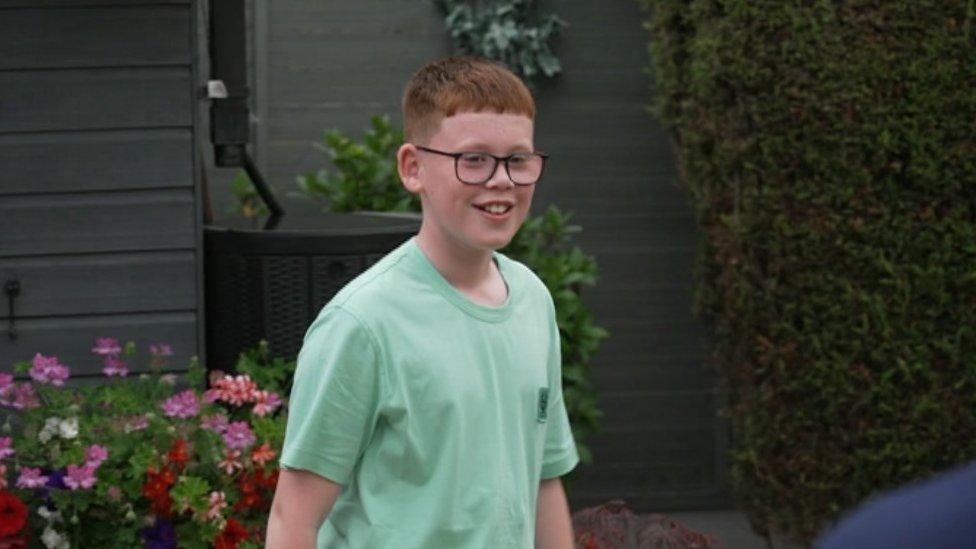
Ronnie's parents say he is bubbly, fun-loving and basketball obsessed
With more than 150,000 people waiting for autism assessments in England, the BBC visited one Staffordshire village to speak to families affected and find out what affect it is having on their children.
Ten-year-old Ronnie is bubbly, fun-loving and obsessed with basketball.
When he was in Year One of primary school, he started to squint and make involuntary movements.
On one day, his mother Beverley said he did 19 tics in less than a minute.
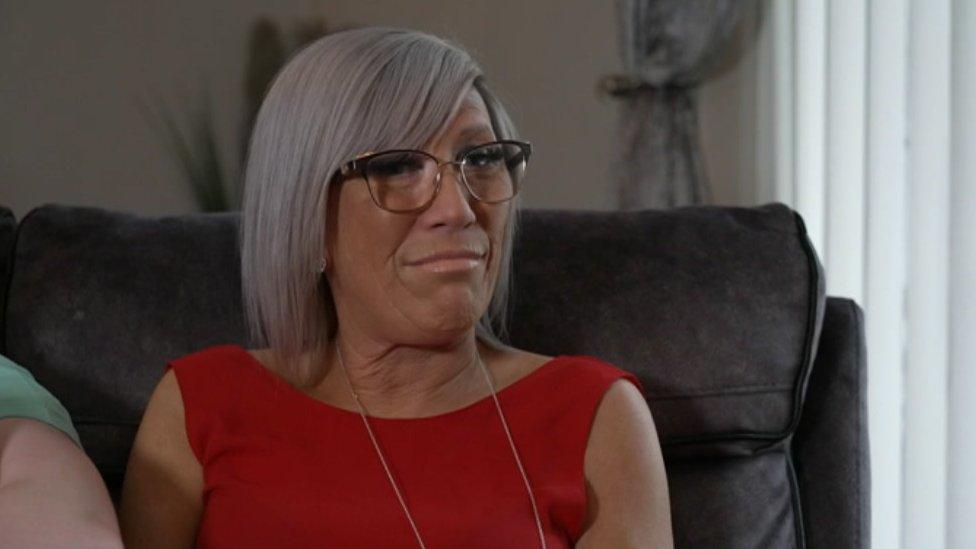
Beverley said she worried how her son would cope in secondary school without support in place
"When Ronnie was doing these movements...as he moved through the school, Ronnie was bouncing his head off the table, ticking, kicking his legs up and hitting the table," she said.
"The school have put in place...he's got a weighted blanket to try and support his legs, he'd got a cushion on the table to stop him damaging his head."
He was diagnosed with complex tics, external but it also raised further concerns for his parents.
Beverley added: "As we have gone through the process, Ronnie was having outbursts, struggle, there were signs that I was noticing of autism and ADHD (attention deficit hyperactivity disorder) traits."
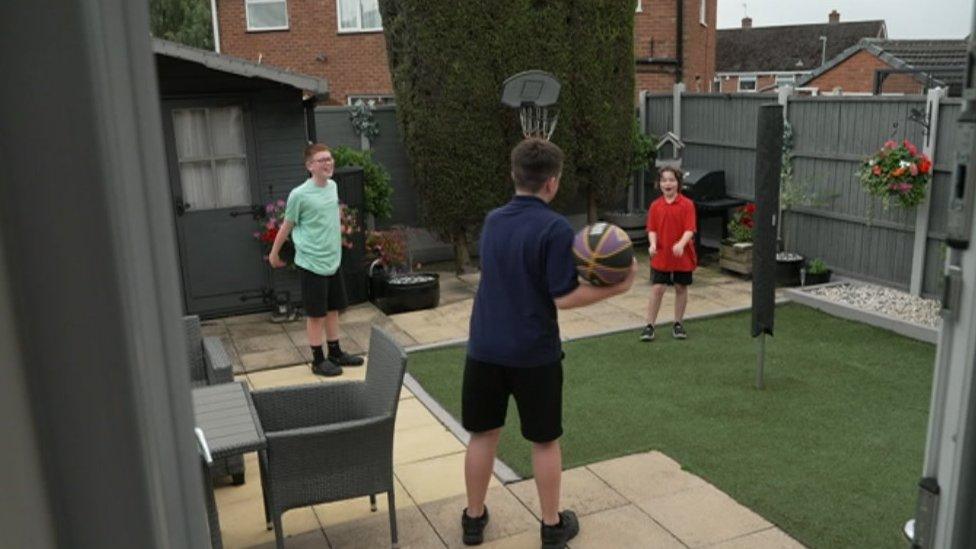
Hundreds of children are awaiting autism assessments in south Staffordshire
He saw a psychologist who referred him for assessment in February 2022 and Ronnie had his initial assessment in January.
At it, his family were told a clinician would need to be sent out to the school to see him - but they have heard nothing more.
Without it, his mother said their application for an education, health and care plan (EHCP) to provide him with support in school was rejected due to a lack of evidence.
"I'm really worried the fact that when he goes to the high school [in September 2024] he's not going to get that support," Beverley added.
"The system at the moment is failing the children, there's not enough support out there for the children."
Ronnie and his family live in Norton Canes, a village of about 6,000 people in south Staffordshire, just off the M6 Toll.
This part of the county has more than 445 children and young people waiting for an assessment, according to the Midlands Partnership NHS Foundation Trust, which is responsible for its autism service.
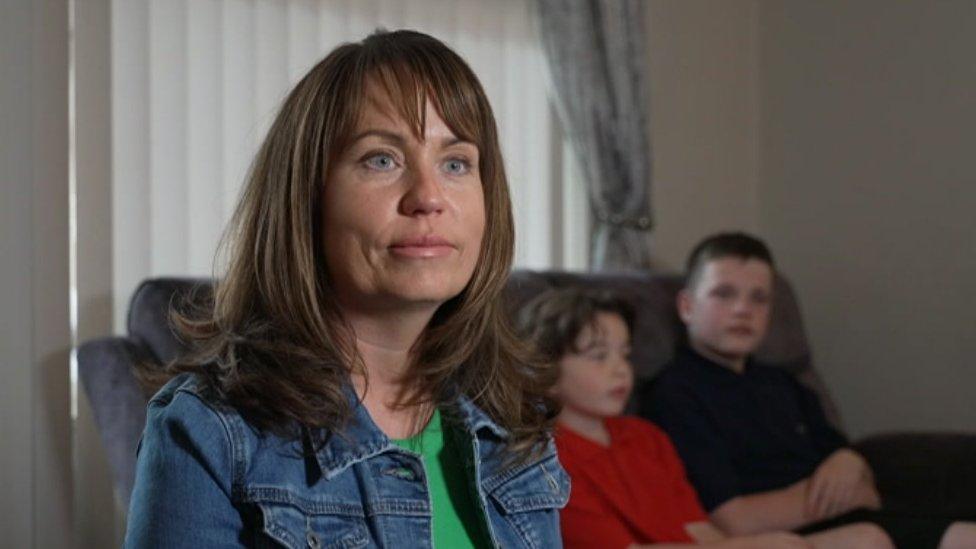
Jane said she knew many families face similar struggles
Family friend Jane knows the situation with waiting times well.
She faced a long road to get a diagnosis for her 13-year-old son Jacob, which began on his first day at nursery.
"The process is so long, you're waiting weeks, months and Jacob was really struggling in mainstream school," she said.
He was finally diagnosed when he finished Year One and that helped the family to secure an EHCP and a place for him in a specialist school.
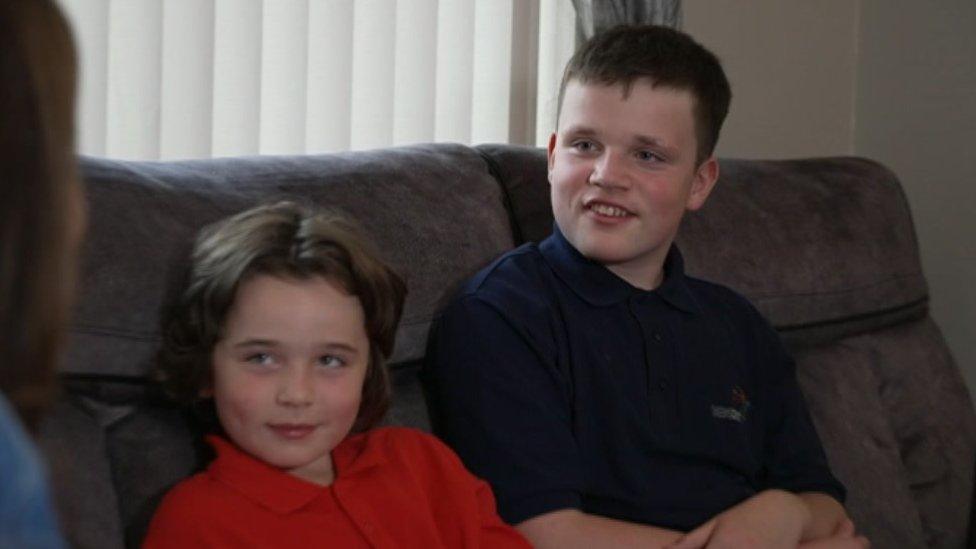
Daniel and Jacob have both required assessments
"It really felt like we were absolutely just screaming out for help," Jane said.
"We were desperate, we didn't know what to do, who to turn to, there's just not enough help."
The assessment process has just begun for her 10-year-old son Daniel.
Getting his first appointment took four months - and they have heard nothing since.

What is autism?
Autism spectrum disorder (ASD) - its medical name - is the name for a range of conditions which affect how a person communicates and interacts with the world around them, as well as their interests and behaviour.
It's not a disease or an illness but a condition that somebody is born with.
The NHS says if you or your child have signs of autism, the next step is to talk to someone about it - including a GP, health visitor, a special educational needs co-ordinator (SENCO) at school - and they will be able to refer on for assessment.
An assessment is done by autism specialists. It's the only way to find out if you or your child are autistic.
(Source: NHS)

Sarah Bamford has four children, including 10-year-old twins, both of whom needed an assessment.
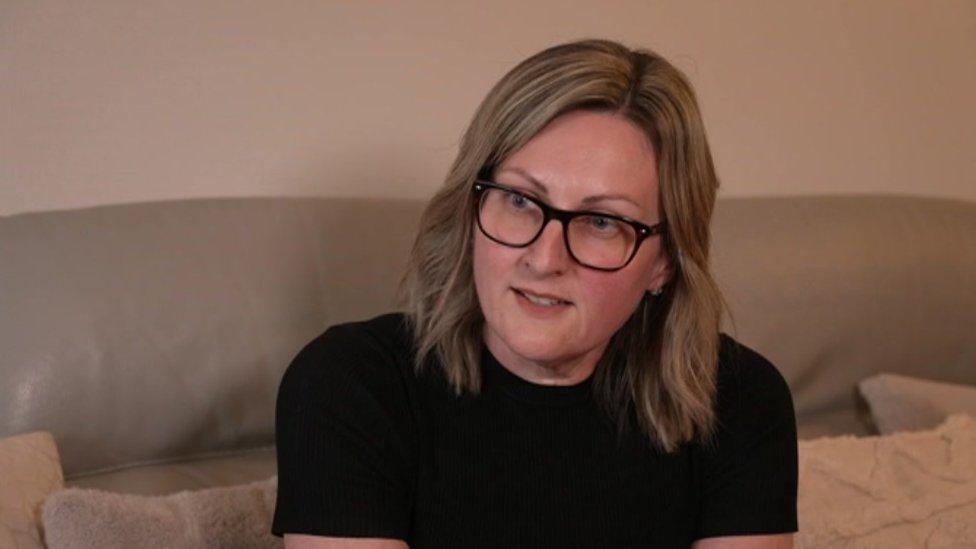
Sarah Bamford has faced battles for her children to receive support
Her son was given an autism working diagnosis at a young age but at four was diagnosed with epilepsy.
The family were told this meant he no longer met the criteria for an autism diagnosis.
An application by the school and the GP on behalf of her daughter was also rejected by the autism assessment service.
Fighting these decisions and facing long delays, they secured private diagnoses for both children.
While she has been able to secure an EHCP with full-time support for her son, in the case of her daughter, her private diagnosis was not accepted by the trust, who she said contacted her to say they would do their own assessment.
That was in 2022 and Mrs Bamford said she has heard nothing more.
The lack of an accepted diagnosis also meant she struggled to get an EHCP plan put in place for her daughter.
One was finally made in July after a two-year battle.
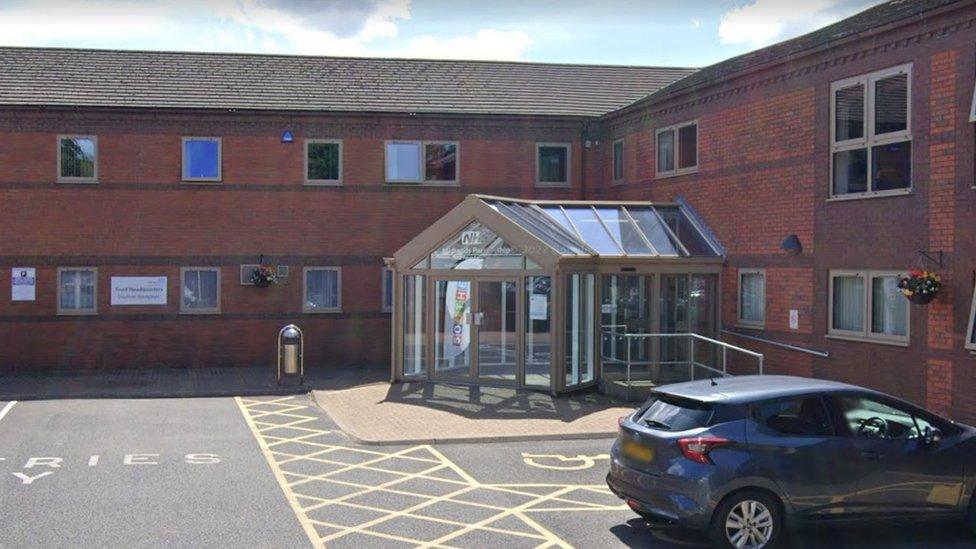
The Midlands Partnership University NHS Foundation Trust, said it had agreed new contracts in a bid to increase capacity and cut waiting times
She has begun the process for her youngest son who was first referred two years ago and referred again at Easter - but the family has heard nothing more.
"It literally takes up so much time," she said.
"It gets to the point where you have that many knockbacks you kind of have to take a step away from it and have some time away.
"Then you realise that, while you are doing that, your children are still going to school, suffering, because they're not getting what they need so you have to get back on it, you don't have a choice."
Staffordshire County Council's cabinet member for education, Jonathan Price, said demand for assessments for an EHCP have increased.
It has funded a further 10 educational psychologists and 13 special educational needs and disabilities keyworkers, he added.
Mr Price said applications for an EHCP can be made at any time in a child's education and they did not need to have a diagnosis before applying.
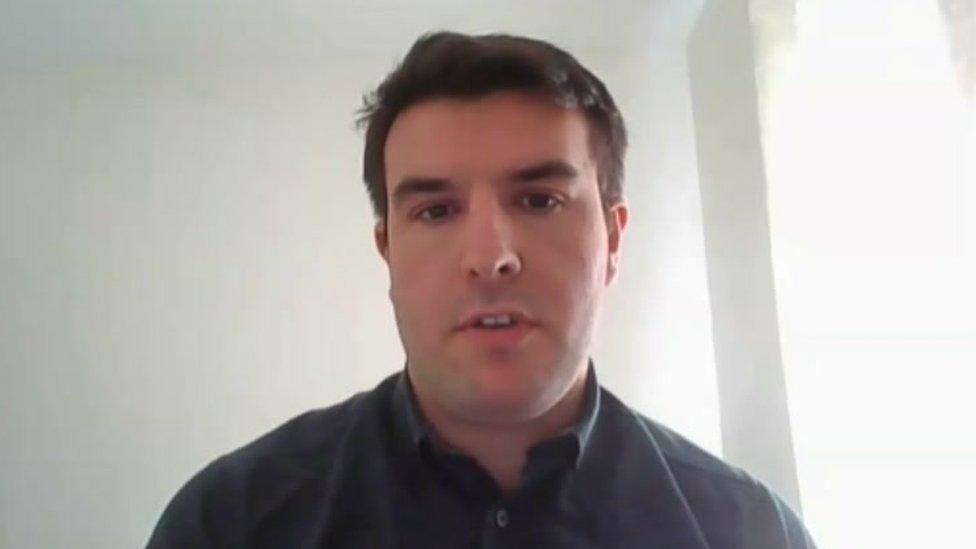
Joey Nettleton-Burrows, from the National Autistic Society, said many autistic people struggled without a diagnosis
The picture in Staffordshire will be a familiar one for families across the country.
The National Autistic Society said, as of March, there were 157,579 people waiting nationally for an assessment.
Joey Nettleton-Burrows, its policy and public affairs manager, said waiting times like those in south Staffordshire were "representative" of what people around the country were experiencing.
"We are hearing a lot from people who can't get support without a diagnosis," he said.
"It can also increase the chance of developing mental health problems like anxiety or depression."

The Department of Health and Social Care said it had made £4.2m available to improve service
The Department of Health and Social Care published a national framework and operational guidance in April to set out how children, young people and adults can receive a timely assessment.
And a spokesperson said it had made £4.2m available in 2023 to improve services for autistic children and young people.
Demand for the Midlands Partnership University NHS Foundation Trust's autism assessment service remained high, a spokesperson said.
"We have agreed further contracts with external providers to deliver additional capacity to support with reducing waiting times," they added.
"We appreciate the frustration families may be experiencing and thank them for their patience."

Follow BBC West Midlands on Facebook, external, Twitter, external and Instagram, external. Send your story ideas to: newsonline.westmidlands@bbc.co.uk, external
Related topics
- Published28 April 2023

- Published23 March 2023
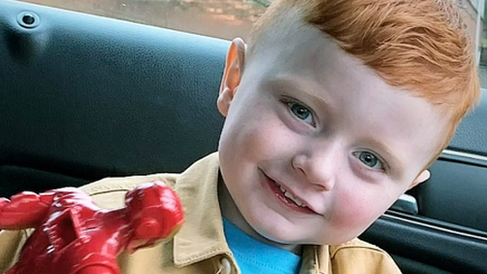
- Published18 July 2018
